From the March1, 2000 Chicago Reader. — J.R.
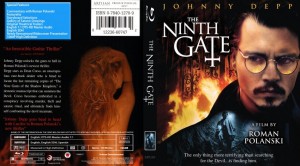
An unscrupulous rare-book dealer (Johnny Depp) is hired by a wealthy demonologist (Frank Langella) to track down and authenticate the remaining copies of a medieval illustrated book apparently authored or coauthored by Satan himself. This Roman Polanski feature, which he adapted with Enrique Urbizu and John Brownjohn from Arturo Perez-Reverte’s best-selling Spanish novel El Club Dumas, is a head scratcher in some respects, a mystery thriller that gradually mutates into a metaphysical fable without adequately developing its characters. But it’s so visually striking, so compulsively watchable as storytelling, and so personal even in its enigmas that I found it much more pleasurable than any of the Hollywood genre films I’ve seen lately; despite the fact that it’s 132 minutes long, I felt more regret than relief when it ended. Polanski is one of the few remaining directors of craft belonging to the classic novelistic tradition of Welles and Kubrick, and if this picaresque adventure lacks the conviction of Bitter Moon, it’s at least as good as Frantic. With Lena Olin, Emmanuelle Seigner, and Barbara Jefford; the sleek cinematography is by Darius Khondji (Seven, Stealing Beauty). (JR)
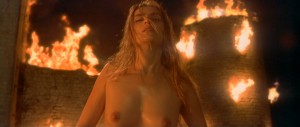
Read more
From the Chicago Reader (May 4, 2001). — J.R.
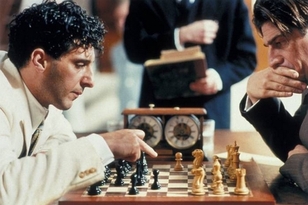
The Luzhin Defence
Directed by Marleen Gorris
Written by Peter Berry
With John Turturro, Emily Watson, Geraldine James, Stuart Wilson, and Christopher Thompson.
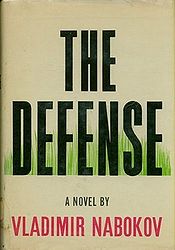
In Slate last March two film critics with literary backgrounds, Phillip Lopate and A.O. Scott, argued about Terence Davies’s adaptation of The House of Mirth — an exchange that only illustrated how hard it is to settle questions about fidelity to novels. Lopate, who’s been involved with film much longer than Scott, called it his favorite American film of 2000. Scott, whose readiness to bone up on movies since he started reviewing them for the New York Times has been invigorating, didn’t seem blind to some of the film’s virtues, but he was much more concerned with what seemed reductive about it.
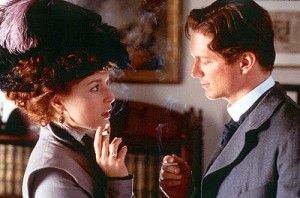

Having read Edith Wharton’s novel for the first time just before I saw the movie, I found myself agreeing to some extent with both critics. The film is inferior to Davies’s Distant Voices, Still Lives, The Long Day Closes, and The Neon Bible, all three of which strike me as essential works, though they’ve received much less attention from the mainstream, perhaps because they’re further from conventional narrative. Read more
From the Chicago Reader (January 1, 2000). — J.R.


Alain Resnais, probably the greatest living French filmmaker, has never made an indifferent or unadventurous film, and he’s much more talented and innovative than Francois Truffaut. On connait la chanson (1997, 120 min.), a more accurate translation of which might be I Recognize the Tune, was inspired by British screenwriter Dennis Potter (Pennies From Heaven); its characters frequently break into lip-synched French pop songs, which serve as cross-references to their moods and aren’t always bound by gender. (When Resnais made similar use of French film clips in Mon oncle d’Amerique, contemporary actress Nicole Garcia was cross-referenced with Cocteau’s actor Jean Marais.) A comedy about real estate and class differences, Same Old Song was the biggest hit of Resnais’ career in France, superbly capturing Paris in the 90s; it’s less popular among viewers unfamiliar with the music, but even if you can’t follow all the nuances, this is fun and different and at times mysterious (periodically revealing Resnais’ surrealist roots). Written by and costarring the talented couple Jean-Pierre Bacri and Agnes Jaoui, who previously scripted and acted in Un air de famille (and wrote Resnais’ previous two features), this also has graceful performances by Resnais regulars Sabine Azema, Pierre Arditi, and Andre Dussollier. Read more








